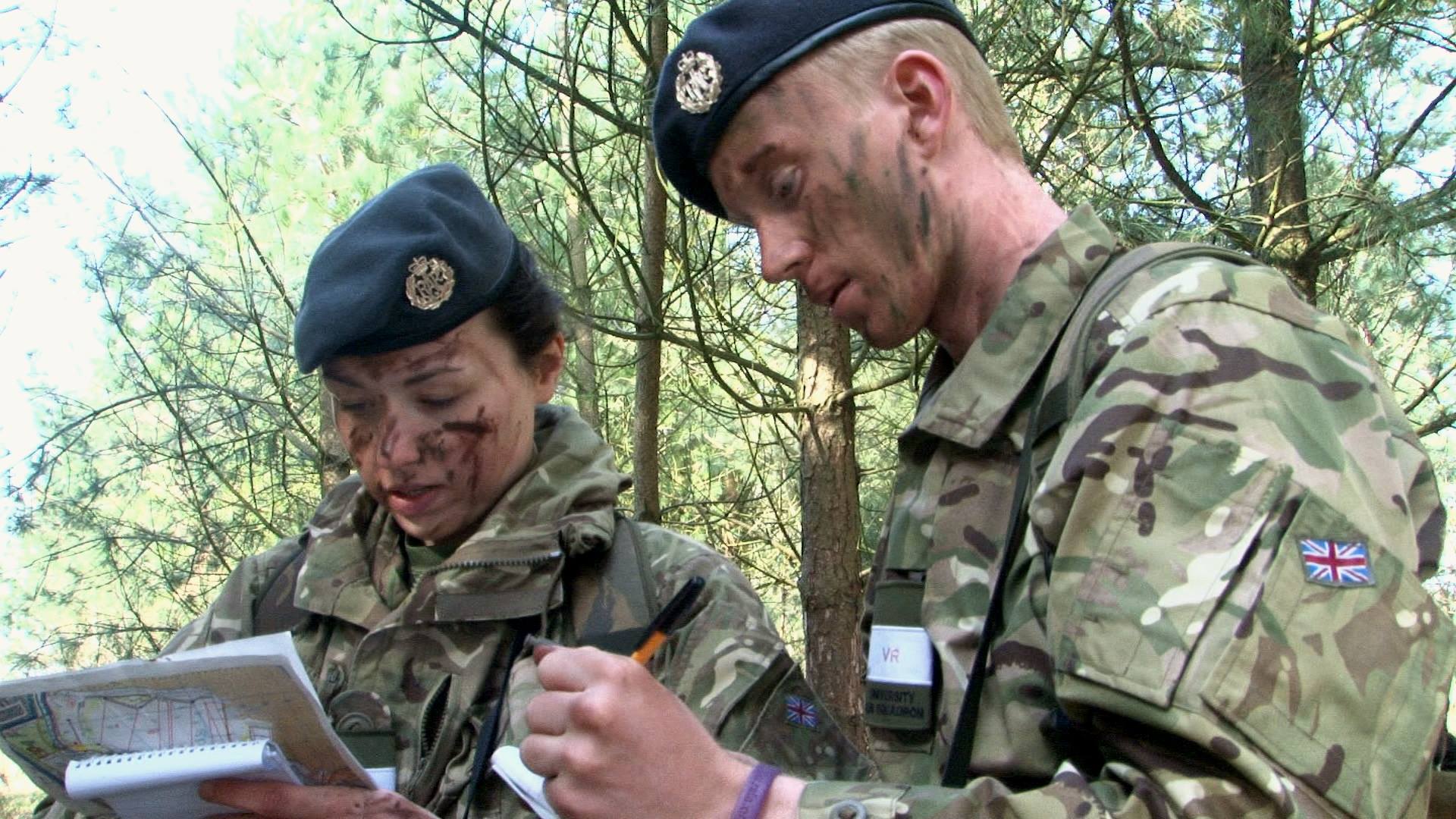
By Paul Redmond, the University of Manchester
How do graduate recruiters view the experiences and skills gained by students from university Army, Navy and Air Force units – and how, from a non-military recruiter’s perspective, do the Officer Training Corps, University Air Squadron and Royal Navy Unit rank against other student clubs and societies?
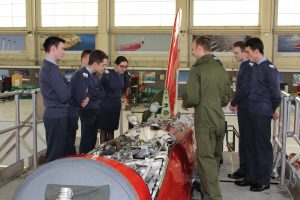
Manchester UAS visit the Red Arrows.
With the competition for graduate jobs increasing every year, students have become aware of the strategic importance of joining clubs and societies – particularly those with a high employability ‘wow’ factor.
But with so many clubs and societies to choose from – and given that the average graduate recruiter spends less than two minutes assessing each application – which are most likely to stand out on a CV?
To find out more about employers’ perceptions of various university clubs and societies, I carried out a small-scale study that involved contacting a range of graduate recruiters. I wanted to know more about how these employers responded to students who were enrolled in not only the standard sports and social clubs that most universities have to offer, but in particular, the three military service units that are to be found on many campuses. How do non-military recruiters view the skills and experience gained by students from the University Officer Training Corps (UOTC), University Air Squadron (UAS) and University Royal Navy Unit (URNU)?
University Challenged
From conversations with service personnel at my University, the University of Manchester, the study felt timely. Thanks to the internet and the growth of social media, there has been a proliferation in the numbers of campus based clubs and societies on offer. Military service units now have to compete with hundreds of vying-for-attention clubs and societies.
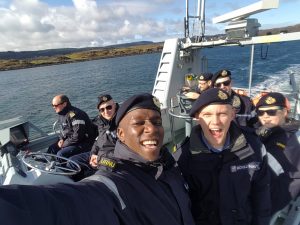
Manchester URNU Officer Cadets on Easter Deployment.
Added to this, graduate recruiters themselves have become far more active in engaging students through ‘informal’ extracurricular networks such as clubs and societies. In addition to sponsoring kit and equipment, many recruiters offer paid internships which students can access on a part-time basis. The benefits are mutually-rewarding: the student gains paid work experience; the employer gains a potentially cost-effective insight into a future recruit.
The recruitment agency High Fliers recently provided an insight into how employers are increasingly using work experience as a first step towards graduate recruitment:
- More than 90% of the UK’s leading graduate employers are offering paid work experience programmes for students – an unprecedented 14,058 places are available.
- Three-quarters of employers provide paid vacation internships for penultimate year students and at least half offer industrial placements for undergraduates (typically lasting 6-12 months as part of a university degree course).
- Increasing numbers of employers now also have work experience places for first year undergraduates – over a quarter of organisations offer paid internships and two-fifths of employers run introductory courses, open days and other taster experiences for first year students.
- Almost half of graduate recruiters claim that graduates with no previous work experience are unlikely to be successful during the selection process.
Employers’ perceptions of military service units
This question is pertinent because if students are to market effectively the skills and experience gained from the UOTC, UAS and URNU, they will need to understand how to ‘translate’ this into a narrative that is coherent to a non-military recruiter.
The Research
The study took place with a selection of UK graduate recruiters between March and May 2016. A range of industries and sectors were engaged; engineering, medical services, banking, professional services, retail, financial services and the public sector. One participant recruited fewer than ten graduates per year, while another hired more than 1,600. Some recruiters were ambivalent about A-level grades, and one required applicants to possess at least 280 UCAS points. All-but-three respondents, regardless of sector, stipulated a minimum 2:1 degree classification.
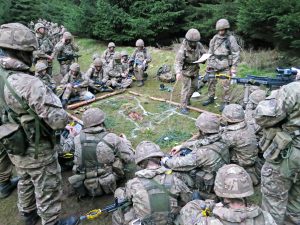
OTC Officer Cadets Orders delivery.
Skills
In general, it was found that most recruiters are seeking to recruit self-motivated graduates who are able to demonstrate high levels of communication and leadership skills. Problem-solving was the second highest skill requirement, followed by organisational skills, emotional intelligence and commercial awareness.
Interestingly, employers ranked IT skills as their least prioritised skill – presumably on the basis that IT skills are now ubiquitous across society and have therefore lost their market value.
Student Clubs and Societies
One of the objectives of the study was to explore to what extent recruiters in non-military organisations viewed the UOTC, UAS and URNU – particularly in relation to other student clubs and societies. Respondents were offered a list of typical student clubs and societies and asked to prioritise them in order of their attractiveness and relevance to the recruiter’s organisation (Table 1).
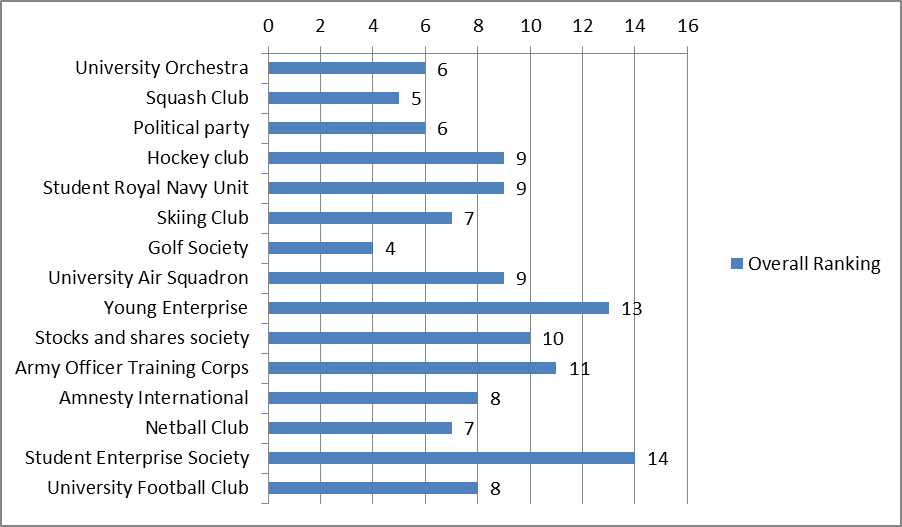
Table 1: Clubs and societies, as ranked by a sample of graduate recruiters.
Table 1 illustrates the value that recruiters attach to enterprise-related clubs and societies and the extent to which they are likely to prioritise experience gained in enterprise-related clubs and societies.
This is consistent with other employer-related studies, which have found a growing interest amongst graduate recruiters in enterprise-related activities. That said, UOTC was the third-highest ranked student society, with UAS and URNU ranked joint fifth.
Recruiters’ perceptions of clubs and societies
Recruiters were then asked to rank the same list of clubs and societies by their capacity to provide students with the most useful and relevant employability skills. From this it was found that recruiters ranked UOTC as the society that they perceived as offering students the best opportunity for acquiring employability skills. This was followed jointly by UAS and URNU. This is a significant finding and illustrates the value that non-military employers attach to the three service units.
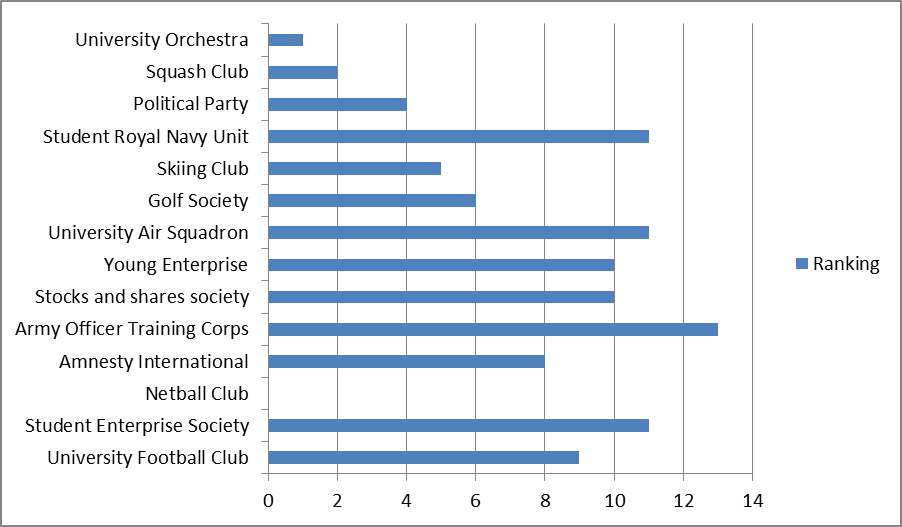
Table 2: Development of employability skills by clubs and societies.
Charting the benefits of UOTC, UAS and URNU
Finally recruiters were invited to comment on the specific employability-related skills which they attributed as being developed by UOTC, UAS and URNU. Here, it was interesting to note that respondents particularly associated the service units with leadership, problem solving and communication skills, followed closely by emotional intelligence and time management (Table 3).
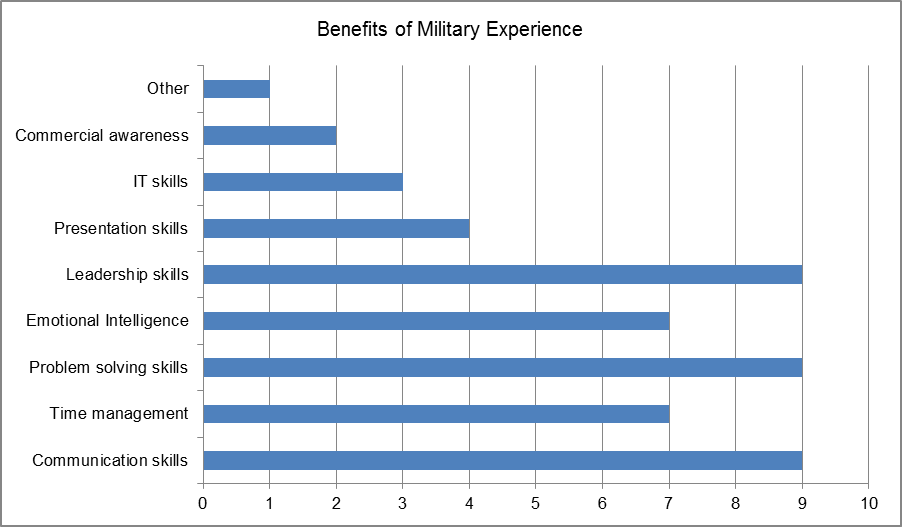
Table 3: The skills, knowledge and personal qualities non-military recruiters associate with experience gained in UOTC, UAS and URNU.
Summary
Despite initial concerns about there being a lack of understanding between non-military graduate recruiters and the universities’ service units, graduate recruiters from a cross section of organisations maintain a very high opinion and regard for UOTC, UAS and URNU and in particular, the skills and opportunities they provide to students. Indeed, in many cases, recruiters rank these organisations higher than the majority of other student-related clubs and societies.
At the same time, the study has emphasized the added value that recruiters attach to enterprise skills and commercial awareness. This would seem to suggest that an opportunity exists for service units to demonstrate to students – and their future employers – just how effective they can be in boosting students’ long-term employability.
Finally, this study offers a possible framework (and vocabulary) for universities themselves to assist service units marketing themselves to students, parents and guardians, academics and prospective graduate recruiters.
Dr Paul Redmond is Director of Student Life at The University of Manchester.







